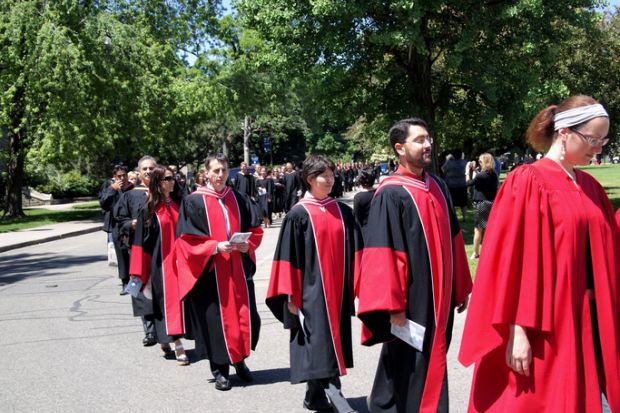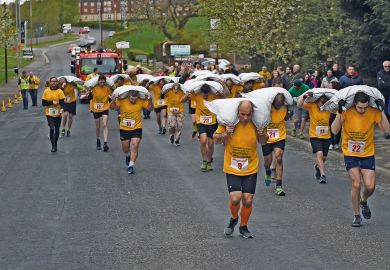A Perth university has rescinded an honorary doctorate it granted just four months ago to a former politician, raising new questions over whether the token awards are worth the potential pain.
On 20 July, Edith Cowan University (ECU) told staff and students that it had revoked the honorary degree presented to Barry House, a long-serving MP who served as president of the state parliament’s upper house and received Australia’s third highest civic honour in 2019.
Vice-chancellor Steve Chapman said the move – a backflip on ECU’s earlier decision to let the doctorate stand despite lobbyists’ demands that it be withdrawn – had followed the university council’s “thorough and thoughtful review” of views expressed by Mr House that were “incompatible with the university’s values”.
ECU announced the honorary degree in March, as a footnote to a media release highlighting a non-binary computer science student as evidence that ECU graduates were “paving the way for diversity in the workplace”.
The announcement drew protests from Busselton Pride Alliance (BPA), a lobby group in Western Australia’s south-west, where Mr House is based. BPA spokeswoman and ECU student Clare Paine said Mr House had voted against the decriminalisation of homosexuality and adoption rights for same-sex couples, among other equity measures.
In 2002, during debate on a lesbian and gay law reform bill, he said he respected homosexuals as people and professionals but “I cannot respect what they do and what they stand for in their private life”.
ECU’s award cited his “eminent career” in teaching and politics. “If you’re giving somebody an award for the role they were in, you need to look at everything they’ve done in that role,” Ms Paine said.
In June, Professor Chapman told BPA that the award would not be revoked. His letter noted “Mr House’s apology, regret at the hurt his past comments have caused and his assurance that his views have changed”.
BPA accused the university of succumbing to “weasel words”. It said Mr House had not apologised to the gay community or changed his views, and had only expressed regret for the way his opinions had been framed.
“Until now, Mr House’s comments were the problem. ECU is now part of the problem too because its response ignores the concerns of the LGBTI community,” BPA’s letter says.
The award was revoked after Mr House published a letter in his local newspaper, the Busselton Dunsborough Times, insisting on his right to an “alternative” opinion. “No group has the right to become judge and jury,” his letter says. “Isn’t it strange that this small minority group, who preaches love all round, seem to be the most nasty, intolerant and vindictive people in our community? Having said all that, I wish them well.”
Ms Paine said BPA had not been looking for a fight. “It’s not like we dragged this up just because we want to. It’s because they’ve given him this award [for his political service]. There’s probably other people at the time who said similar things and voted in those ways. If anyone wants to give them an award, we will take on that as well.”
Corporate governance campaigner Stephen Mayne said honorary doctorates should be issued only “in very special circumstances” to outstanding individuals with significant university connections. “Australian universities have cheapened the currency of honorary doctorates by issuing far too many”, said Mr Mayne, founder of the online magazine crikey.com.
“Dishing out honorary doctorates like confetti to curry favour or win some publicity cheapens the achievement of academics who have put years into their PhDs. You can understand former premiers and prime ministers being awarded one, but why should [golfer] Greg Norman and [children’s entertainers] The Wiggles be recognised in such a way?”
Mr House’s award is not the first honorary degree revoked by ECU. In 2014 it annulled the honorary doctorate of letters awarded in 2000 to Rolf Harris, after the entertainer was convicted of sex offences.
Register to continue
Why register?
- Registration is free and only takes a moment
- Once registered, you can read 3 articles a month
- Sign up for our newsletter
Subscribe
Or subscribe for unlimited access to:
- Unlimited access to news, views, insights & reviews
- Digital editions
- Digital access to THE’s university and college rankings analysis
Already registered or a current subscriber? Login








